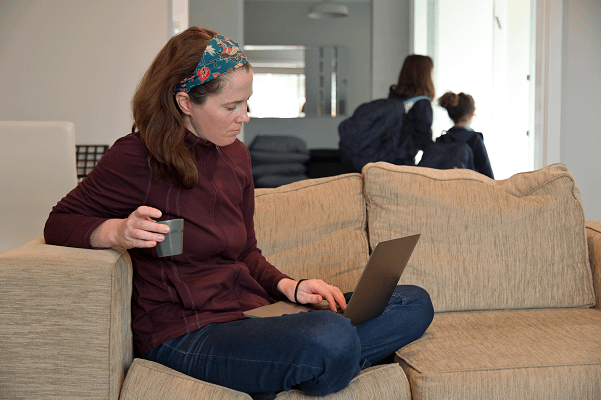The rise of remote work has brought with it many well-documented advantages, but a new survey by HomeWork Workspace, the community-centred coworking provider, has revealed the emotional and mental toll it can take on UK business owners and employees.
In a survey of 2,600 people in the UK – all of whom are either business owners or employees – it was found that most (45%) always work from home and 14% work permanently from an office, while 9% split their time between home and a dedicated office, and 8% work an equal amount at home and at a coworking space.
Among those who work from home most regularly, some worrying trends related specifically to homeworking were observed:
- 75% feel that their setup needs to be improved
- 58% feel lonely when working from home
- 58% find it harder to switch modes between work and social life
- 36% end up working longer hours
- 31% feel their workspace isn’t comfortable
- 22% believe their own and their team’s productivity has worsened
- 17% have lost contact with friends and/or family
- 17% have seen their household bills – e.g. energy, telecoms, groceries – increase
Three in five (61%) homeworkers believe the loneliness of working from home has negatively affected them. Specifically, a third (30%) say that homeworking has reduced their enjoyment of work, and a similar number (35%) say it has made it harder to build and maintain relationships.
More than a quarter (28%) said that the loneliness caused by homeworking has reduced their motivation to work on their projects or business, and 4% say that loneliness has affected their business financially (for example due to loss of clients or missed opportunities).
Perhaps inevitably, when asked what their preferred working arrangement would be, just 8% said they’d like to work from home permanently, which was only just above returning to an office full-time (7%). By far the most popular options were to work at a coworking space (22%) or to have a flexible, hybrid model (63%).
Claire Tucker, founder of HomeWork Workspace, said, “The numbers show that the flexibility of remote work is a double-edged sword. While it offers freedom, it also presents challenges that can impact mental well-being and productivity. But solo entrepreneurship or remote work doesn’t have to equate to loneliness.
“While the way we work – and where we do it – has likely been permanently changed due to the pandemic, the change was so sudden and so extreme that we’ve not been able to adapt quickly enough. Plus, the expense of creating an environment that’s conducive to work, from home, can be unrealistic and unnecessary for most of us.
“Working locations don’t have to be a choice between ‘at home’ or ‘in the office’, and we see the appeal of dedicated co-working spaces growing as an alternative ‘third space’ for start-ups and employees of big businesses alike.”


Leave a Comment